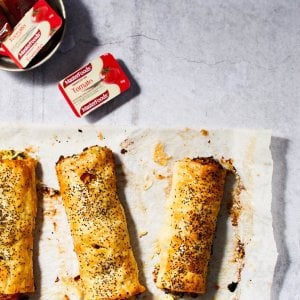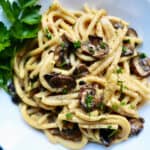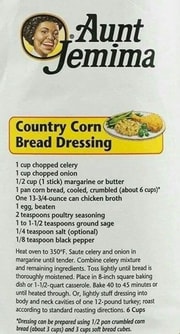Iconic Aussie food product takes major step towards sustainability with bold packaging change
- Replies 6
For many Australians, the simple act of squeezing sauce onto a meat pie is a cherished ritual, one that's been made all the more convenient since the introduction of one iconic food product.
Now, this product is set to undergo a major transformation, marking a significant step forward for both the brand and the country's culinary landscape.
This change has sparked plenty of buzz, with many excited about the potential impact on the product's future and its place in Australian kitchens.
As the evolution unfolds, the shift promises to leave a lasting impression on consumers and industry experts alike.
Introduced in 1990, MasterFoods’ Squeeze-on packaging has faced challenges with recycling due to its small plastic dispensers, which are often found as litter.
The company has now revealed it is making a ‘major step forward’ by testing a paper version of the packaging.
This new innovation took five years of research and a significant $3 million investment to develop.

Although the new packets contain slightly less sauce, MasterFoods assures customers that the improved design will not affect the amount of sauce dispensed onto pies, chips, and sausage rolls.
‘Because in the original version, quite a bit of residual sauce would be left in the pack’s plastic ‘crinkles’. In the new pack, the sauce glides out more smoothly, meaning there is around four per cent less food waste,’ MasterFoods stated through a public relations firm.
The new packets are not just about reducing plastic waste; it's about a comprehensive approach to sustainability.
The new sauce packets are made with FSC-certified paper, ensuring that no endangered species' habitats are destroyed in their production.
Moreover, they're proudly made in Australia, with plans to incorporate recycled materials once the packaging scales up beyond the trial set for 2025.
But the question on many environmentally conscious minds is: Can these tiny sauce packets actually be recycled effectively?
MasterFoods has been working with the Australian Packaging Covenant Organisation (APCO) to ensure the new design meets the minimum size standard for recycling and will bear the Australian Recycling Logo (ARL).
This means customers will be directed to place used sauce packets into their kerbside recycling bin.
However, there are concerns from within the recycling industry about the packets' size and potential to contaminate glass loads, leading to landfill.
MasterFoods is aware of these concerns and plans to work closely with recycling organisations during the trial to monitor how the packets fare in real-world recycling facilities.
‘'The purpose of the trial is to validate the assumptions on how the pack will perform throughout the entire value chain,’ the company stated.
This initiative is part of a broader struggle to reduce plastic dependency, a challenge that extends far beyond Australia's shores.
Mars, the parent company of MasterFoods, is a major player in the Australian market for pet foods, chewing gums, and chocolates.
As part of its climate crisis response, it has recently announced trials of paper wrappers for popular brands like Snickers and Milky Way.
The company uses around 8,000 tonnes of plastic annually and aims to reduce its environmental impact.
While it set ambitious sustainability targets for 2025, Mars acknowledged in August that, despite making ‘good progress’, it was ‘unlikely to fully meet them’.
Phasing out plastics is a goal that companies deserve credit for, but many have struggled to meet their targets.
Last month, Toohey’s said that it will not achieve its aim of eliminating single-use plastics by the end of 2025.
Similarly, global leaders participating in United Nations talks to reduce plastic use have faced challenges.
Although 175 nations agreed in 2022 to create a global treaty, progress has been slow. The fifth round of negotiations will begin in Busan, Korea, on November 25.
As companies across Australia take significant steps towards sustainability, changes in food packaging are becoming increasingly common.
For example, MasterFoods’ move to trial paper packaging for its iconic squeeze-on sauce marks a major shift in reducing plastic waste.
This focus on eco-friendly alternatives isn't just limited to condiments; even fresh produce is undergoing changes to meet sustainability goals.
Recently, Coles announced a shift in the way mandarins are packaged, further contributing to the growing trend of environmentally conscious packaging updates in the food industry.
 So, dear members of the Seniors Discount Club, next time you're enjoying a pie with a squeeze of sauce, think about the changes coming our way and how we can all play a part in a greener future. What are your thoughts on this new development? Are you excited to try the new paper sauce packets? Share your opinions and experiences with us in the comments below!
So, dear members of the Seniors Discount Club, next time you're enjoying a pie with a squeeze of sauce, think about the changes coming our way and how we can all play a part in a greener future. What are your thoughts on this new development? Are you excited to try the new paper sauce packets? Share your opinions and experiences with us in the comments below!
Now, this product is set to undergo a major transformation, marking a significant step forward for both the brand and the country's culinary landscape.
This change has sparked plenty of buzz, with many excited about the potential impact on the product's future and its place in Australian kitchens.
As the evolution unfolds, the shift promises to leave a lasting impression on consumers and industry experts alike.
Introduced in 1990, MasterFoods’ Squeeze-on packaging has faced challenges with recycling due to its small plastic dispensers, which are often found as litter.
The company has now revealed it is making a ‘major step forward’ by testing a paper version of the packaging.
This new innovation took five years of research and a significant $3 million investment to develop.

MasterFoods is trialling a paper sauce packet as a sustainable alternative to its plastic Squeeze-on packets. Credit: Facebook / MasterFoods
Although the new packets contain slightly less sauce, MasterFoods assures customers that the improved design will not affect the amount of sauce dispensed onto pies, chips, and sausage rolls.
‘Because in the original version, quite a bit of residual sauce would be left in the pack’s plastic ‘crinkles’. In the new pack, the sauce glides out more smoothly, meaning there is around four per cent less food waste,’ MasterFoods stated through a public relations firm.
The new packets are not just about reducing plastic waste; it's about a comprehensive approach to sustainability.
The new sauce packets are made with FSC-certified paper, ensuring that no endangered species' habitats are destroyed in their production.
Moreover, they're proudly made in Australia, with plans to incorporate recycled materials once the packaging scales up beyond the trial set for 2025.
But the question on many environmentally conscious minds is: Can these tiny sauce packets actually be recycled effectively?
MasterFoods has been working with the Australian Packaging Covenant Organisation (APCO) to ensure the new design meets the minimum size standard for recycling and will bear the Australian Recycling Logo (ARL).
This means customers will be directed to place used sauce packets into their kerbside recycling bin.
However, there are concerns from within the recycling industry about the packets' size and potential to contaminate glass loads, leading to landfill.
MasterFoods is aware of these concerns and plans to work closely with recycling organisations during the trial to monitor how the packets fare in real-world recycling facilities.
‘'The purpose of the trial is to validate the assumptions on how the pack will perform throughout the entire value chain,’ the company stated.
This initiative is part of a broader struggle to reduce plastic dependency, a challenge that extends far beyond Australia's shores.
Mars, the parent company of MasterFoods, is a major player in the Australian market for pet foods, chewing gums, and chocolates.
As part of its climate crisis response, it has recently announced trials of paper wrappers for popular brands like Snickers and Milky Way.
The company uses around 8,000 tonnes of plastic annually and aims to reduce its environmental impact.
While it set ambitious sustainability targets for 2025, Mars acknowledged in August that, despite making ‘good progress’, it was ‘unlikely to fully meet them’.
Phasing out plastics is a goal that companies deserve credit for, but many have struggled to meet their targets.
Last month, Toohey’s said that it will not achieve its aim of eliminating single-use plastics by the end of 2025.
Similarly, global leaders participating in United Nations talks to reduce plastic use have faced challenges.
Although 175 nations agreed in 2022 to create a global treaty, progress has been slow. The fifth round of negotiations will begin in Busan, Korea, on November 25.
As companies across Australia take significant steps towards sustainability, changes in food packaging are becoming increasingly common.
For example, MasterFoods’ move to trial paper packaging for its iconic squeeze-on sauce marks a major shift in reducing plastic waste.
This focus on eco-friendly alternatives isn't just limited to condiments; even fresh produce is undergoing changes to meet sustainability goals.
Recently, Coles announced a shift in the way mandarins are packaged, further contributing to the growing trend of environmentally conscious packaging updates in the food industry.
Key Takeaways
- MasterFoods is trialling a new paper sauce packet for its products as a sustainable alternative to the hard-to-recycle plastic Squeeze-on packets.
- The new packets are made with FSC-certified paper which contributes to a reduction in plastic and food waste and are manufactured in Australia.
- Despite the packets being advertised as recyclable, there is concern that they might be sorted incorrectly in recycling facilities and end up in landfills.
- Mars, MasterFoods' parent company, is looking to reduce its environmental impact and is exploring paper wrappers for other products despite acknowledging challenges in meeting sustainability targets.







